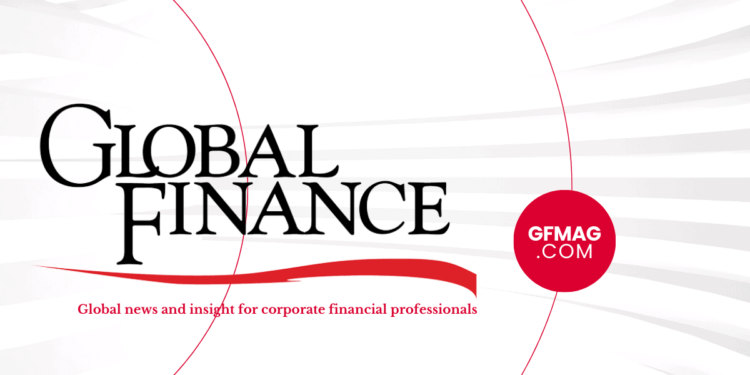The Benelux nations have much in common, yet each has its own strengths and obstacles. Belgium, the Netherlands and Luxembourg, three original founding members of the European Union, are strategically positioned in the heart of Europe. All three were hard hit by the financial crisis and turmoil in the eurozone. But all three appear to be moving with renewed vigor into a period of growth, led by foreign direct investment. Foreign direct investors, in fact, continue to flock to the Benelux nations, attracted by their digital infrastructure, rule of law, stability and highly educated workforce.
Geography is key. The seaports of Antwerp in Belgium and Rotterdam in the Netherlands are transit points to the rest of Europe, and their situation has fostered strong logistics sectors in both nations, particularly the Netherlands. Retailers have seized the opportunity, including e-commerce giant Amazon, which operates a massive warehouse in the southern part of Holland, enabling it to serve the domestic market, Belgium and Germany.
Labor laws make Belgium somewhat less appealing. “In Belgium, strict regulations on night shifts make it more expensive for an e-commerce firm to deliver rapidly by working through the night,” notes Peter Vanden Houte, chief economist at ING Belgium.
In Luxembourg, a multilingual workforce facilitates cross-border transactions and international investment funds. Some 70% of Luxembourg City residents are non-natives, and there’s a daily swell of regular commuters from across the border.
“The city more than doubles [its population] during the daytime, with all the French, German and Belgians who arrive,” says Bob Calmes, head of the New York office of law firm Arendt & Medernach.
Often described as the Delaware of Europe, Luxembourg, like that small US state, offers an efficient tax regime and corporate legal system, a high density of financial service providers and armies of lawyers. “A first wave of law firms arrived from the UK in the 1990s, with other Benelux law offices opening more recently,” says Calmes, whose own firm is the largest in Luxembourg. “Over the past four years, international firms like Baker and McKenzie have added healthy competition,” he notes.
Educational levels are particularly high in Belgium and the Netherlands, which have world-class universities. Luxembourg also benefits from the educational caliber and professional backgrounds of its commuting workers.
Despite their small size, all three Benelux nations operate fairly diversified economies based on services and industry. Logistics is a leading sector in Belgium and the Netherlands. Both countries also have important chemical and biotech sectors. “In general, Holland is more trade-oriented, with Belgium more directed toward industry and production,” says Luc Strybol, head of the economic mission of Flanders, consulate general of Belgium in New York. His country produces a wide variety of goods, ranging from chocolate and beer to plastics and diamonds.
Investment funds are Luxembourg’s bread and butter. Entities use them to raise money in Europe, Asia and Latin America. Many of the very first dim sum bonds were issued in Belgium, whose offshore remnimbi business continues to expand. The banking sector, too, has benefited from the country’s stability; Luxembourg is among the last remaining triple-A-rated sovereigns, besides Germany and the Nordics.
But although Luxembourg is probably best known as a financial center—the largest in Europe, after London—other industries actually account for about two-thirds of its GDP. It is home to the headquarters of ArcelorMittal, the world’s biggest steel conglomerate, and space and satellite enterprises like SES. Supranational institutions, such as the European Court of Justice, the European Investment Bank and the European Investment Fund, offer proximity to decision-makers.
The Benelux region has long attracted corporations with favorable tax regimes, although the jurisdictions cannot be considered tax havens—in the sense that reporting is transparent and former banking secrecy practices have ended. In coming years, transparency will be further enhanced under the Organization for Economic Cooperation and Development tax initiatives.
“Some particular schemes will be scaled back, as part of a generalized trend,” Vanden Houte warns. For instance, the Dutch system reduces taxes on revenues from intellectual property developed in the Netherlands. In Belgium firms can deduct some remuneration of capital for imputed costs, under the notional interest deduction.
A strong dollar has encouraged mergers and acquisitions in 2015, such as Perrigo’s takeover of Omega Pharma and Esterline’s acquisition of the aerospace defense division of Barco. “We want to convince acquirers to keep a European headquarters in Belgium,” says Strybol. “We don’t want them to buy companies and move everything away.”
Making Headway
Each Benelux country has unique challenges. The Dutch economy struggled with two recessions in 2008, as well as a burst housing-market bubble that left households highly indebted and exposed. Today, home prices remain 35% below pre-crisis levels but are improving, albeit from a low base, as confidence picks up.
In general, Holland is more trade-oriented, with Belgium more directed toward industry and production.
~ Luc Strybol, consulate general of Belgium in New York
“Some people are even concerned about a new bubble, at least in Amsterdam,” says Jessica Hinds, European economist at Capital Economics. While cautioning that high indebtedness may yet crimp the recovery, her firm offers hope that the housing resurgence may be sustainable, as disposable incomes and mortgage lending are both on the rise, and the government is planning a fiscal boost for Holland’s housing market in 2017.
Belgium, meanwhile, was been shadowed for years by an unusual political morass that followed the 2010 elections, when it was unable to form a government for 18 months. Although the country functioned, it could not pass a budget. “Simply renewing the old budget was not enough to address fiscal issues,” says Francesca Peck, economist at global consultancy IHS. Economic sentiment finally improved in early 2015, as Peck suggests, “because it took less than a year this time to form a government.”
The new Belgian government has introduced reforms aimed at improving competitiveness, including ending the policy of indexing wages to inflation. With the highest labor costs in the Benelux, Belgium will reduce employers’ share of social security taxes from 33% to 25% of salaries from 2016 to 2018. New taxes on alcohol, cigarettes and diesel will finance the cuts, says Strybol.

Smaller social contributions by employers should help retain important industrial companies. “One of the biggest Ford plants in Europe, with several thousand workers, moved in 2014 to Valencia, Spain,” Vanden Houte recalls.
All three Benelux countries remain vulnerable to external trade and geopolitics. The Dutch rely heavily on re-exporting products, such as German or US goods ultimately destined for China. But most Dutch exports flow to the eurozone, where demand remains sluggish and currency fluctuations are neutral. “If France or Germany is hit by disappointing GDP numbers, that immediately feeds into Dutch trade figures,” Peck notes. Or if, hypothetically, the UK should vote to leave the EU, Benelux would immediately feel the pain.
Belgium’s lack of competitiveness, combined with weak import demand from the eurozone, looks likely to restrain growth. Capital Economics forecasts GDP growth of a paltry 1% from 2015 through 2017, which will keep pressure on its 100% debt-to-GDP ratio. That compares with a ratio of 69% for the Netherlands and 20% for Luxembourg.
Dutch GDP is also modest, seen at 1.5% this year and 1% for 2016. Luxembourg’s GDP, on track for about 1.8% this year, is actually outperforming most of its European peers. And unemployment continues to bedevil the group, standing at 8.7% in Belgium and 6.8% in the Netherlands.
The Benelux region is still recovering from a difficult period, but it appears to be turning a corner. Finally, the language of austerity is giving way to a different message: One of reviving national economies, defense and security spending, combating unemployment and starting new business enterprises.
Source link : https://gfmag.com/features/benelux-turns-corner-progress/
Author :
Publish date : 2015-12-11 08:00:00
Copyright for syndicated content belongs to the linked Source.


